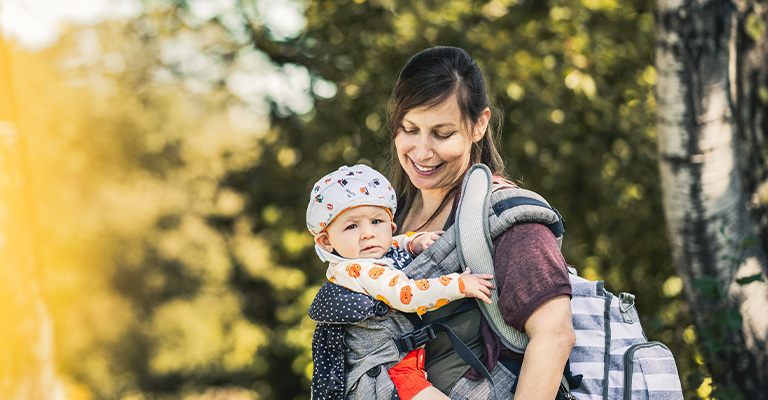How does sole parental responsibility work?
Sole parental responsibility refers to a legal arrangement in Australian family law where one parent is granted complete decision-making authority over a child's upbringing, without the need for consultation or agreement from the other parent.

Sole parental responsibility is typically awarded by the court when the other parent is deemed unfit, unwilling, or unable to care for the child, or when there is a history of abuse or neglect.
This would give the parent with sole parental responsiblilty full responsibility over decisions related to the child, including matters such as:
- Education
- Religion
- Health care
General welfare.
What is parental responsibility?
Parental responsibility is defined in Section 61b of the Family Law Act 1975 (Cth) as the responsibility, powers, and authority which parents have over a child under 18 years of age. The family law system adopted in Australia holds the ‘best interests’ of the child as the most important consideration in all family matters involving children.
Generally, there is a presumption that parents have equal shared parental responsibility over a child because this would be in the child's best interests.
This means that both parents have the responsibility, power, and authority noted in Section 61b of the Family Law Act 1975 (Cth). Accordingly, both parents have equal responsibility over the day to day and the big decisions concerning the child’s life. This includes decisions concerning:
- The child’s name
- Where the child lives
- The child’s religious upbringing
- The culture the child is brought up in
- Medical treatment the child receives and any other health matters
- Education decisions.
If in a parenting dispute, the Family Court rules in favor of equal shared parental responsibility, this means that both parents must communicate with each other and come to an agreement about large decisions concerning their child.
It is important to note however, that equal shared parental responsibility does not mean that each parent is entitled to equal time with the children in the relationship.
Time spent with children is not a direct representation of any ‘responsibility’ or ‘power’ exercised under Section 61b.
Shared parental responsibility
Shared parental responsibility can take many different forms depending on the circumstances of each family. This includes cases where separating parents have equal shared parental responsibility in every aspect of their child’s life except one aspect of the child’s life.
For example, it could be agreed that only one parent will have responsibility for the child’s cultural or religious upbringing.
In other circumstances, it may be ordered by the Court that only one parent receives responsibility for all aspects of a child’s life. Having sole responsibility for a child means that the Court has decided that it is in the child’s best interests that only one parent should make decisions about the child’s life. This will be expanded in the section below.
Sole parental responsibility
Whether or not parents are given equal shared parental responsibility, or if one parent receives sole parental responsibility of a child will depend on the child’s best interests. This is because the Court considers the "best interests" of the child as the most important consideration.
Parenting Orders and Sole parental responsibility
A Parenting Order will either formalise an existing agreement made between both parents or can be issued by the Court when there is a parenting dispute. Before getting a Parenting Order it is recommended that the party seeks legal advice.
Equal shared parental responsibility vs Sole parental responsibility
It is important to consider that it is difficult to rebut the presumption of equal shared responsibility and hence the Court will only grant sole custody in rare circumstances.
This means that if the Court has granted sole parental responsibility, it will likely mean there is a legitimate reason that one parent should not be as involved in a child’s life.
For the Family Court to order that only one parent will have sole parental responsibility, the parent will have to rebut the presumption of equal shared parental responsibility. This will involve that parent applying to the Family Court for sole parental responsibility through a Parenting Order.
This means that the parent will have to show the Court that equal shared parental responsibility is not in the child’s best interests. In determining this, the Court will consider:
- The nature of the relationship between the child and both parents
- Whether the child is closer to one parent
- Whether there are reasonable grounds to believe that has been family violence or domestic violence in the relationship
- Whether there are reasonable grounds to believe that there is a risk of family violence or domestic violence in the relationship.
It is notable that it does not necessarily follow that a sole parental responsibility arrangement means that one parent will never be able to see or contact their children.
It is possible that the one parent with sole parental responsibility can decide that both parents can see the child equally or that the other parent can also have a say in major decisions concerning the child’s life.
Conclusion
The circumstances of a relationship breakdown will impact the way child custody will work after the parties have split. While the 'default' option is for shared parental responsibility, there can also be scenarios where one parent carries all the parental responsibility - this is called sole parental responsibility.
If you need any assistance regarding a separation, divorce or any aspect of family law, then contact us via the form below.


